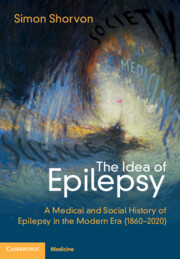Book contents
- The Idea of Epilepsy
- The Idea of Epilepsy
- Copyright page
- Dedication
- Contents
- Preface
- Section 1 The Voyage Of The Good Ship Epilepsy
- Section 2 ‘A Plague upon Your Epileptic Visage’
- Section 3 Epilepsy: The Paradigm of the Suffering of Both Body and Soul in Disease
- Epilogue The Separation of the Wheat from the Chaff
- Book part
- Glossary
- Bibliography
- Index of Names
- Index
Epilogue - The Separation of the Wheat from the Chaff
from Section 3 - Epilepsy: The Paradigm of the Suffering of Both Body and Soul in Disease
Published online by Cambridge University Press: 13 January 2023
- The Idea of Epilepsy
- The Idea of Epilepsy
- Copyright page
- Dedication
- Contents
- Preface
- Section 1 The Voyage Of The Good Ship Epilepsy
- Section 2 ‘A Plague upon Your Epileptic Visage’
- Section 3 Epilepsy: The Paradigm of the Suffering of Both Body and Soul in Disease
- Epilogue The Separation of the Wheat from the Chaff
- Book part
- Glossary
- Bibliography
- Index of Names
- Index
Summary
The understanding of epilepsy in 2020 is compared to that in 1860. During the intervening years, many theories and practices were introduced, widely adopted and then fell from favour. Despite this, remarkable progress has been made. This chapter takes stock not only of the substantial body of knowledge that has endured, but also of the mistakes made, and blind alleys entered, in the past. The advances made in science and medicine, and the changes in societal attitudes, are put into their historical context. The second purpose of this chapter is to consider where, in the author’s opinion, contemporary epilepsy seems now to be taking wrong turnings and which current concepts are likely to wither like others in the past. Here the spotlight turns also onto the ‘dark side’ of epilepsy, where ideas are not only wrong but detrimental and false. In recent years, terminology has changed and in Eastern cultures the word for epilepsy has changed its form. The question is also debated as to whether reform should be more far-reaching and the term ‘epilepsy’ dropped altogether.
Keywords
- Type
- Chapter
- Information
- The Idea of EpilepsyA Medical and Social History of Epilepsy in the Modern Era (1860–2020), pp. 585 - 629Publisher: Cambridge University PressPrint publication year: 2023



